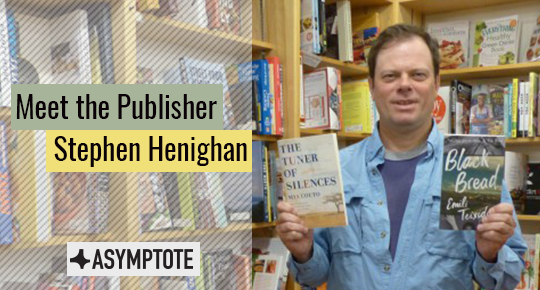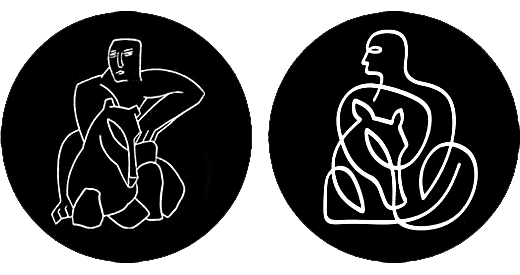This interview marks the launch of a new series here at the Asymptote blog: “Meet the Publisher.” Every month, we will bring you an insider’s look at the world via in-depth, intimate conversations with publishers of literature in translation from around the globe. This week, contributor Sarah Moses brings us an interview with editor Stephen Henighan of Biblioasis in Ontario, Canada, on the process, politics, and passion of publishing translations.
Sarah Moses says: “Biblioasis started out as a bookshop in Windsor, Ontario in the late 1990s. In 2003, founder and owner Daniel Wells took an interest in publishing and, alongside editor John Metcalf, began to acquire, edit, and launch the press’s first titles. Biblioasis now publishes between twenty-two and twenty-five books a year divided between new literary fiction, non-fiction, and poetry, alongside reprints and regional-interest books. Biblioasis’s head office still includes a bookstore, and the press also runs a quarterly magazine, Canadian Notes & Queries. The Biblioasis International Translation Series, which accounts for four titles a year, includes works from French Canada and around the world, as well as books written in Canada in languages other than French or English. I sat down with series editor Stephen Henighan to chat about the press and literary translation in Canada.”
Sarah Moses (SM): I’d like to begin by asking you about literary translation in Canada. How would you say it differs from other countries?
Stephen Henighan (SH): In other cultures—and Buenos Aires, where you’ve just come from, is a good example, if you think back to Jorge Luis Borges and his friends in the early part of their careers, but also in New York or London or Paris—translation was an avant-garde activity. It was an activity that might nourish national literary debate, but above all it was there to give you aesthetic relief from the national context.
I think what happened in Canada is that, especially in the 1960s and 1970s, the literary elite was nationalist and therefore wasn’t all that interested in translation. There had been odd translations from French-Canadian literature to English-Canadian literature, mainly in the 1940s and 1950s, but the real translation culture begins in the late 1960s in the Eastern Townships of Quebec, where in the village of North Hatley writers of English and French were living side by side. That’s where Sheila Fischman, who has gone on to translate more than one hundred and fifty books, got her start.



